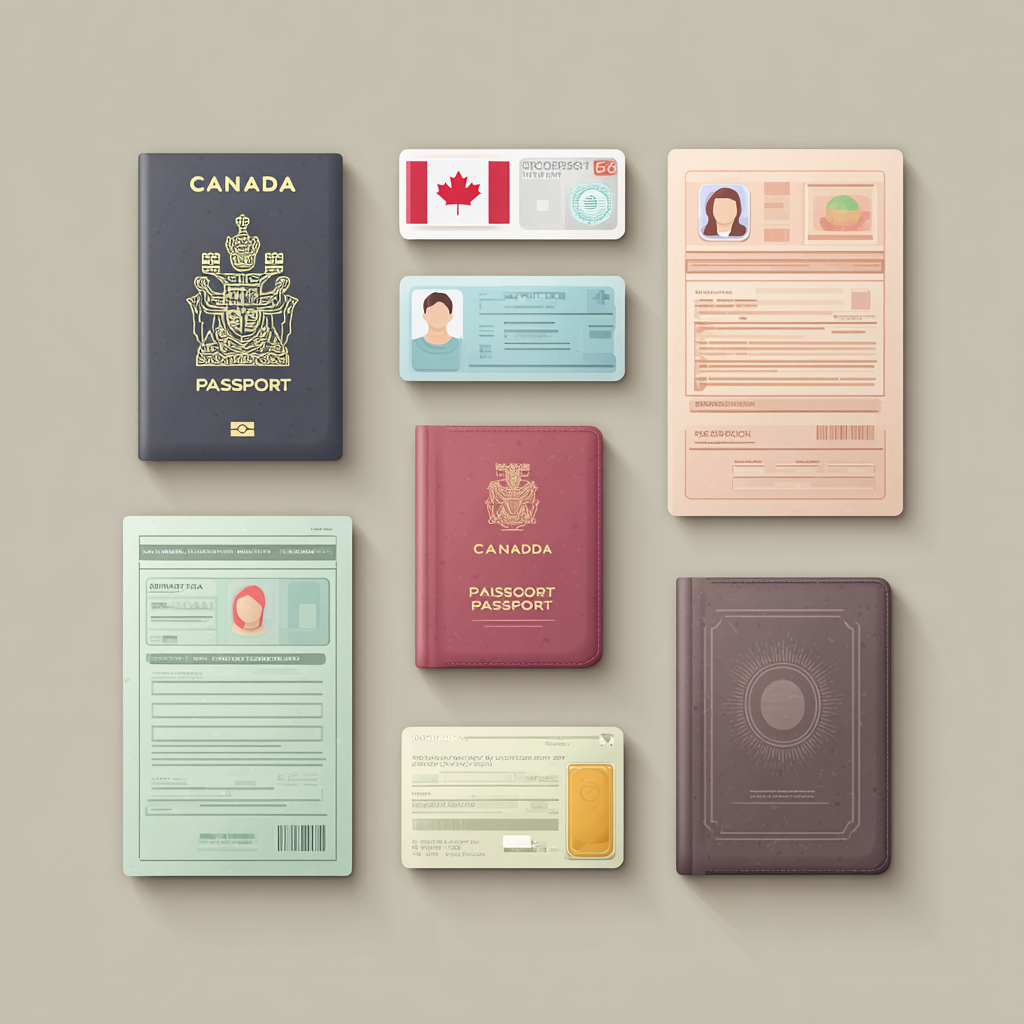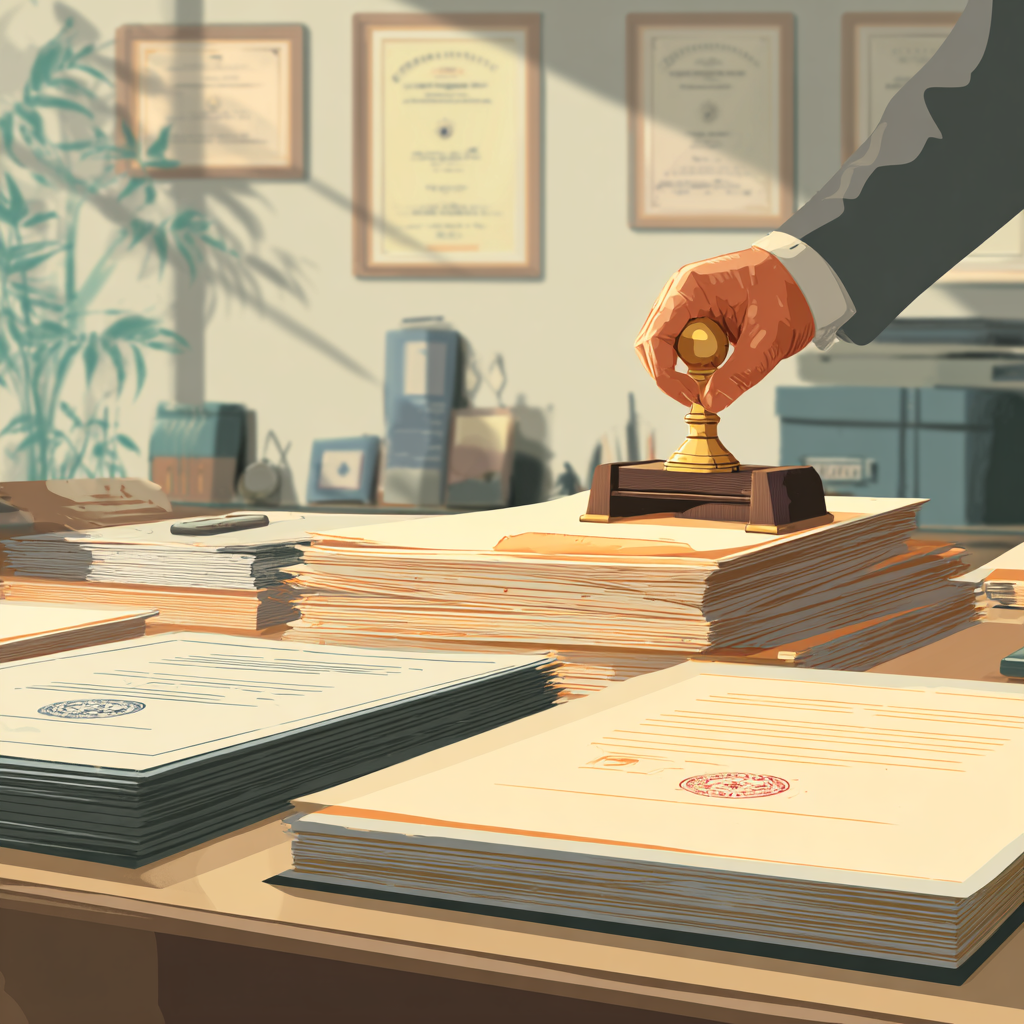Whether you’re applying for a study permit, submitting immigration paperwork, or handling a professional licensing process, there’s a good chance you’ve come across the term certified true copy. But what exactly does it mean, and how can you get one quickly and correctly in British Columbia?
At Simpson Notaries, we assist hundreds of clients annually with certified true copies for a wide range of documents, including academic records and legal ID verification. In this article, we’ll walk you through what certified true copies are, why they matter, and how to get them notarized efficiently — without unnecessary delays or confusion.
What Is a Certified True Copy?
A certified true copy is a photocopy of an original document that a notary public has verified as being a true, accurate, and unaltered reproduction of the original. It is not a notarization of the contents of the document — rather, it confirms that the copy you’re submitting matches the original presented at the time of notarization.
The notary will inspect the original document, compare it to the photocopy, and then stamp and sign the copy, adding a notation that it is a “true copy of the original.”
This type of notarization is commonly required when institutions request copies of documents but will not accept plain photocopies. These typically include:
- Government agencies
- Immigration authorities (e.g., IRCC)
- Post-secondary institutions
- Regulatory bodies
- Employers
Because many of these organizations operate at a national or international level, there’s a strong focus on verifying document authenticity through a recognized third party — in this case, a commissioned notary public. Without this certification, your application could be delayed or rejected, even if all your supporting documentation is otherwise accurate.
Common Documents That Require Certified True Copies
Some of the most frequently notarized documents at our offices in Chilliwack, Abbotsford, and Hope include:
- Passports
- Driver’s licences
- Birth certificates
- Marriage certificates
- University degrees and diplomas
- Professional licences
- Utility bills (for proof of address)
- Transcripts or academic records
- Name change certificates
Each of these documents serves a unique purpose, but they all share one thing in common: the need to be verified in a way that satisfies legal and administrative requirements. For example, academic transcripts may be required for graduate school admissions abroad, while proof of address is often necessary for regulatory applications in healthcare, finance, or law enforcement fields.
Need a certified true copy for immigration or international schooling? Simpson Notaries offers same-day service in most cases — just bring your original documents and matching photocopies.
How the Process Works at Simpson Notaries
Getting a certified true copy at Simpson Notaries is a simple, straightforward process.
Start by booking an appointment — or just walking in. We offer flexible scheduling across our offices in Chilliwack, Abbotsford, and Hope. For faster service, we recommend calling ahead.
You’ll need to bring the original document. The notary must inspect the physical original — scans or digital copies will not qualify. If you already have a photocopy, bring it along. If not, we can make one for you in the office.
The notary will carefully compare the copy to the original. Once confirmed, they’ll apply a notarial seal and include the proper certification wording. Most certified true copies are completed in under 10 minutes.
If you’re certifying multiple documents, additional fees may apply, but our team always explains costs clearly before beginning.
In some cases, such as professional licensing or international submissions, clients may be asked to notarize multiple supporting documents at once. We’re well-equipped to handle batch processing of certified true copies efficiently, ensuring that your time in our office is both productive and brief.
Why Institutions Require Certified True Copies
A certified true copy adds a layer of trust and legal integrity to a document. When an official copy is notarized, it means a qualified and legally authorized notary has confirmed its authenticity. This helps prevent fraud and ensures transparency — especially in processes involving identity, qualifications, or legal status.
Institutions may request certified true copies when they:
- Need to verify your identity but can’t inspect the original in person
- Are located in another province or country
- Are handling sensitive applications (e.g., immigration, security clearance)
This is especially true for government programs, such as IRCC’s Permanent Residency applications or BC Provincial Nominee Program (PNP) submissions. These programs demand precise compliance with documentation rules — and certified true copies are a key part of that compliance.
Educational institutions also rely on certified true copies when admitting students from abroad or verifying academic credentials issued in other countries. By accepting a certified copy, they reduce the risk of document tampering while maintaining the integrity of their admissions process.

Mobile Notary Option Available
Can’t come to the office? Our mobile notary services are available throughout the Fraser Valley, including Chilliwack, Abbotsford, Agassiz, Hope, and surrounding communities.
Whether you’re at home, in a hospital, or working at a job site, we can bring notarization services to you — including certified true copies. Just call our office to schedule a mobile notary visit.
We’ve served clients in hospitals, seniors’ residences, schools, and even small businesses that needed on-site documentation for staff or customer records. Mobile services are ideal when time is limited, travel is difficult, or privacy is a concern.
What to Bring to Your Appointment
To avoid delays, make sure you bring the following:
- The original document (required for verification)
- A clear photocopy (optional — we can also make one on-site)
- Valid government-issued photo ID
- Any cover sheets or special instructions from the requesting institution
If you’re unsure what type of ID or document format is required, don’t hesitate to ask our staff when booking your appointment. We can help you prepare by reviewing the instructions from the institution you’re submitting to and flagging any potential issues ahead of time.
Some international jurisdictions may have specific formatting or wording requirements. For example, certain European or Middle Eastern organizations may request that the notary use exact language in the certification statement. We can help interpret these or advise on what’s needed to ensure your certified copy will be accepted.
Choosing a Notary for Certified True Copies: What to Look For
Not all notarization services are the same. When it comes to certified true copies, especially for important processes like immigration, professional accreditation, or cross-border transactions, accuracy and attention to detail matter.
Here are a few qualities to look for when choosing a notary:
- Experience with diverse document types: Notaries who regularly handle passports, diplomas, legal ID, and international paperwork are less likely to make procedural errors.
- Clear and upfront pricing: There should be no surprises at the counter. Look for services that disclose fees ahead of time.
- Familiarity with local and international standards: Especially if your documents are going abroad or to government agencies with strict guidelines.
- Efficient turnaround: A smooth, same-day process is essential for those on tight deadlines.
- Accessibility: Offices in your region — or mobile services — can make the process much more convenient.
Choosing a notary who understands the administrative and legal context behind a certified true copy means fewer headaches and more peace of mind. It’s worth asking a few questions up front to ensure the notary you choose is a good fit for your needs.
Certified True Copies vs. Notarized Affidavits: What’s the Difference?
It’s not uncommon for clients to confuse certified true copies with notarized affidavits — both involve a notary public and both include an official stamp. However, the two serve very different legal purposes.
A certified true copy confirms that a photocopy matches the original document. The notary does not make any statement about the truth of the content in the document — only that the copy is an accurate reproduction.
A notarized affidavit, on the other hand, is a sworn written statement. The person signing the affidavit (called a deponent) affirms that the information in the document is true, and does so under oath in front of the notary. The notary’s role here is to verify the identity of the person, administer the oath, and witness the signing.
Here’s a quick comparison:
- Certified True Copy: Validates that a copy matches an original document.
- Affidavit: A sworn statement made by an individual, signed under oath.
Understanding the difference is important, especially if you’re preparing legal documents or submitting materials to government agencies. If you’re ever unsure which one is required, it’s best to ask the requesting institution — or speak to your notary for clarification.
Final Thoughts
A certified true copy might seem like a small detail in an extensive process — but if done incorrectly, it can cause unnecessary delays or rejections. And in many time-sensitive scenarios, a rejected document submission can mean missed deadlines, delayed travel, or financial consequences.
Let Simpson Notaries help you get it done right the first time. With decades of experience, same-day service, and convenient locations across the Fraser Valley, we make notarization stress-free and straightforward.
Our team is ready to assist you — whether you have one document or several. Transparent, professional, and efficient: that’s what you can expect from Simpson Notaries.
Need help today? Give us a call or visit the Simpson Notaries office closest to you.
FAQs: Certified True Copies in BC
Can I email or scan my documents for certification?
No. The notary must physically inspect the original document in person to verify its authenticity.
How long does it take to get a certified true copy?
Most appointments take less than 10 minutes, especially if you bring your own photocopies. For multiple documents, please allow extra time — though we still complete most sessions promptly.
How much does it cost?
Fees are based on the number of documents. We always explain pricing up front — contact your nearest office for a quote. Discounts may be available for batch processing or returning clients.
Can you certify documents in a language other than English?
Yes, but we do not verify the content — we only confirm the copy matches the original. For legal translations, additional services may be required. We can recommend trusted translators if needed.
Do you offer mobile notarization for certified true copies?
Yes. We offer mobile services throughout Chilliwack, Abbotsford, and Hope. Call ahead to arrange a visit. Mobile notarization is especially helpful for seniors, those with limited mobility, and professionals on tight schedules.
